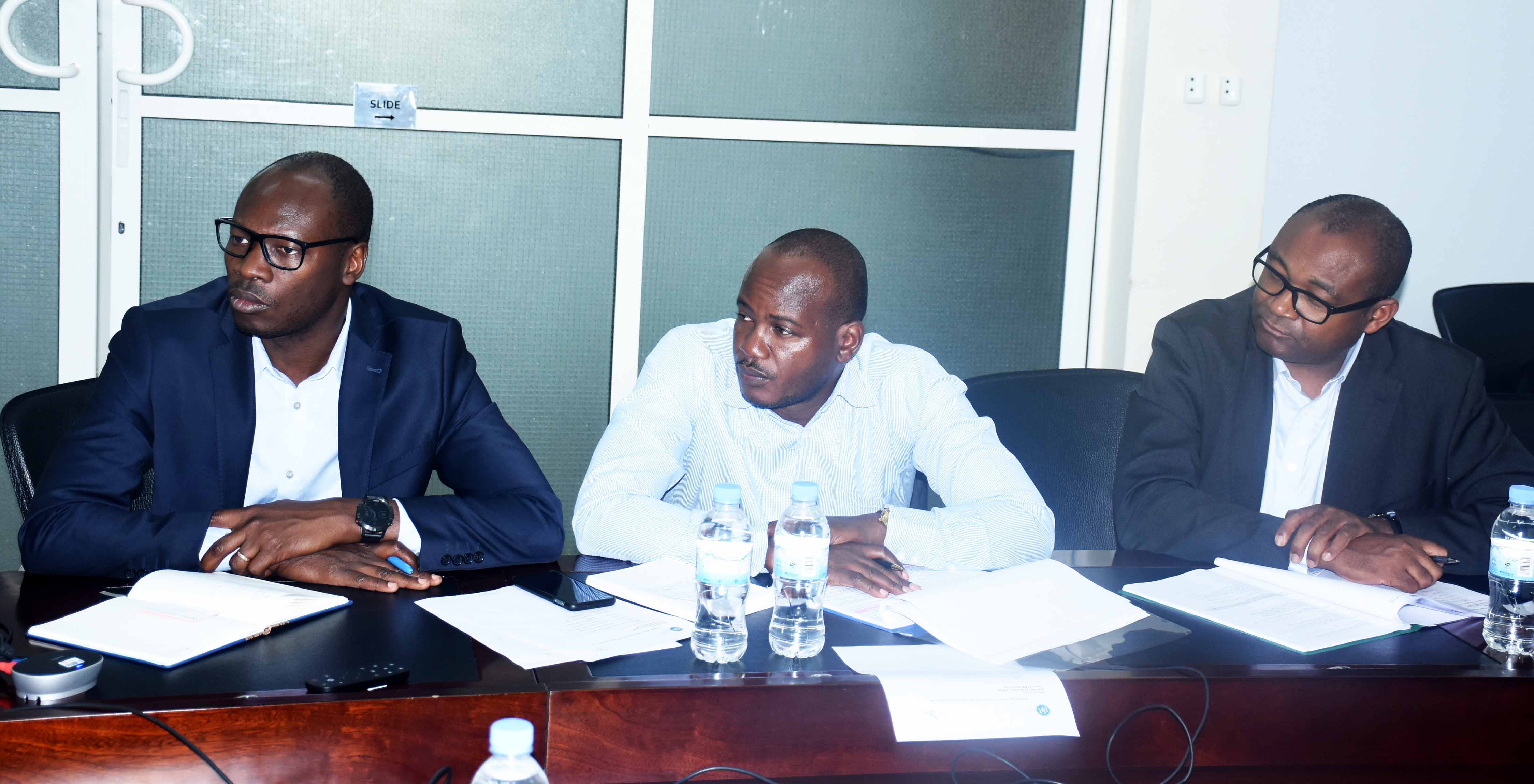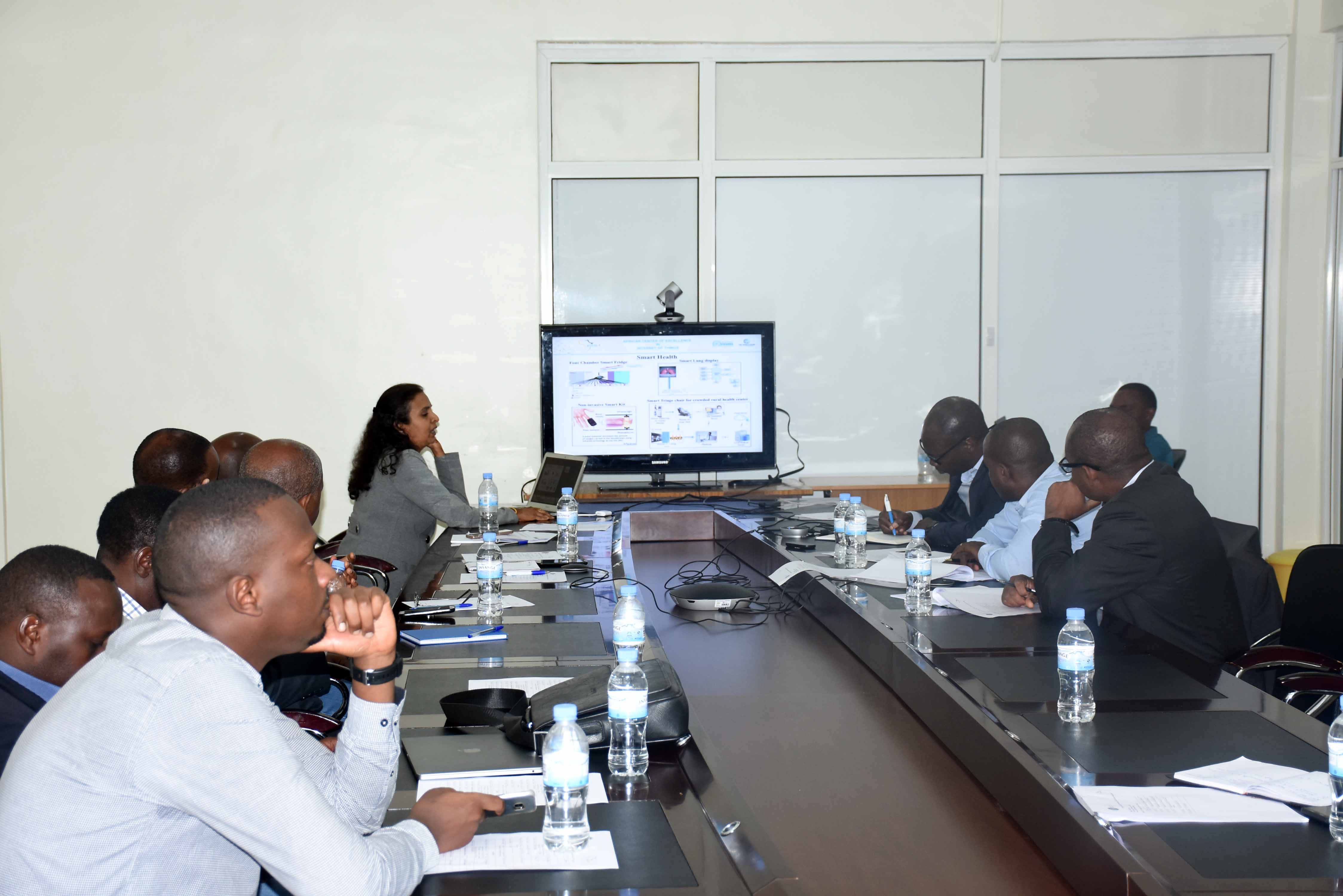
UR-Sweden Symposium showcases innovation-driven solutions to Rwanda’s pressing challenges
- 13-06-2025
- 411
A delegation from Partnership for skills for applied sciences, Engineering and Technology -PASET was received at the University of Rwanda College of Science and Technology. The visit aimed to discuss about the recent selected proposals developed by the Centre of Excellence in Internet of Things-ACEIoT which is poised to train a critical mass of masters, PhD and post-doctoral candidates.
On the occasion Dr Ignace Gatare took the delegation through the existing facilities and programme offered by the College. He noted that the forthcoming academic collaboration with PASET will yet again boost the College’s contribution to the national and regional development.

Dr Gatare (L), UR-CST Principal and Prof Santhi, the Director of ACEIoT
Dr Gatare who is the Principal of UR-College of Science and Technology informed PASET delegates that multidisciplinary approach was highly considered during the development of proposals in collaboration with existing regional centres. According to him, this enables to connect offered programmes with SDGs and other crosscutting areas in the quest to solve complex challenges for social economic development.
By harnessing the multidisciplinary principle, the College seeks to pull together resources and be able to conduct impactful research.
“Research is a driver for the development all over the world, and we have no excuse to lag behind,” He said.
The delegation from PASET commended the way things are happening at the College especially the internal collaboration with different Centres of excellence. They also called for enhancing local collaboration and ensure that systems and programmes in different disciplines are working in harmony.

PASET delegation
The submission of the proposal by UR-CST through ACEIoT follows PASET released Regional Scholarship and Innovation Fund (RSIF). The call seeks to contribute towards the training of a critical mass of PhD and post-doctoral candidates, and support research and innovation in the several priority thematic areas such as ICTs including big data and artificial intelligence ; food security and agribusiness ; minerals, mining and materials engineering to mention but a few.
Under the support of World Bank, the Partnership for skills in Applied Sciences, Engineering and Technology -PASET is an initiative by African governments to address fundamental gaps in skills and knowledge necessary for long-term, sustained economic growth in Sub-Saharan Africa -SSA.
It was launched in 2013 with six Africa countries leading the line including Rwanda, Ivory Coast, Senegal, Ethiopia and Kenya.

School Deans and other CST managers during the discussion